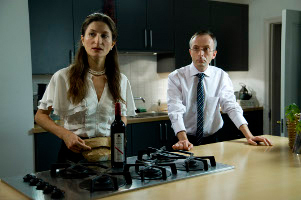Screening: Saturday, June 18, 23:00 (BEST OF GERMANY)

Country of Origin: Germany
Year of Production: 2010
Duration: 20′
Category: Fiction
Director: Josephine Links
Screenplay: Josephine Links
Cinematographer: Lotta Kilian
Editor: Carlotta Kittel
Music: Daniel Sus
Producer: Franziska Koch
Cast: Katrin Sass, Andreas Schmidt-Schaller, Julia Hartmann, Henriette Richter-Röhl
Synopsis: Four people who once were a family come together to clear out their old summer house. Confronted by the past, they not only have to say goodbye to their former unity but also to childhood and an old love. But how do you do that?
Inhalt: Vier Menschen, die einst eine Familie waren, kommen zusammen, um ihr altes Sommerhaus auszuräumen. Mit der Vergangenheit konfrontiert, müssen sie sich von ihrer Gemeinsamkeit, der Kindheit und einer alten Liebe verabschieden. Aber wie?
Festivals & Awards: Internationale Hofer Filmtage; Flanders International Film Festival, Ghent; ALCINE – Festival de Cine de Alcalá de Henares / Comunidad de Madrid; Brest European Short Film Festival, France; interfilm Berlin; International Film and TV Schools‘ Festival, Lodz: 1st Prize; Nominierung Deutscher Kurzfilmpreis
Weblink: www.nach-den-jahren.de






